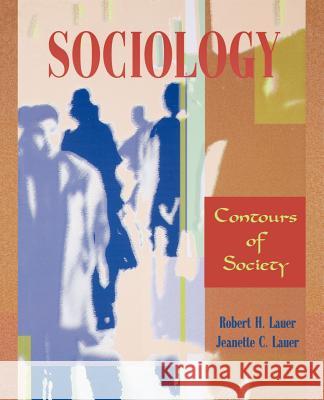Sociology: Contours of Society » książka
Sociology: Contours of Society
ISBN-13: 9780195329780 / Angielski / Miękka / 1998 / 534 str.
Robert and Jeanette Lauer's Sociology: Contours of Society offers comprehensive but concise coverage in an affordable paperback format that does not overwhelm students. This unique text speaks to students. Its student-oriented, conversational writing style and inviting design connects with students on their own level--and asks them to apply what they learn to their own lives. Many examples, vignettes, and inserts include student-written material, which draws students into the text. There is little use of sociological jargon. All concepts are highlighted and defined as they are introduced. Each of the major sociological approaches is presented, with a balance between theoretical and empirical material.
Features:
* A special emphasis on critical thinking. Chapter Two shows students how to apply critical thinking to both popular and professional sources of information. Every chapter features an example of thinking critically well as a critical thinking exercise.
* The use of engaging social science research. This adds a unique degree of factual content to the text. Every chapter makes reference to the type of research reported (e.g., participant observation, survey, experiment, etc.).
* The integration of theory and methods. Both theory and methods are introduced in Chapter One, and their uses in various research studies are integrated into every subsequent chapter.
* The inclusion of feminist theory. Feminist interpretations are given for many of the social issues raised.
* A focus on diversity. Each chapter contains cross-cultural material that compares males and females as well as people from various racial, ethnic, and class backgrounds.
* A global perspective. Comparisons with the societies of other nations are included in every chapter, along with an "Extensions" box that focuses on a particular country or group of nations.
* A balance of micro and macro approaches.
* Collaborative learning projects. "Explorations" boxes draw students into the learning process.
* A chapter on science and technology. This is a topic not found in many comparable textbooks.
* A comprehensive Instructor's Resource Guide/Testing Program is available.











